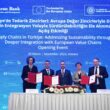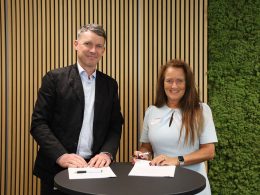ArcelorMittal, the world’s second-largest steel producer, has paused its ambitious plans to transition to greener steelmaking in Europe, attributing the decision to insufficient policy support from EU policymakers. The company announced that projects to replace its blast furnaces with hydrogen-powered alternatives were contingent on a favourable mix of policies, technological advancements, and market conditions, which have not materialised.
The steel giant stated that its transition plan had included the interim use of natural gas until green hydrogen became viable but criticised the EU’s current policy landscape, energy costs, and market conditions as obstacles. Additionally, it pointed to “significant weaknesses” in the EU’s proposed carbon border adjustment mechanism (CBAM) and called for stronger trade protections against cheap steel imports from China.
Aditya Mittal, CEO of ArcelorMittal, expressed gratitude for existing government support but emphasised that the scale of the green steel challenge requires further policy initiatives to unlock the necessary investments. “We would have liked to move faster, but the reality is the regulatory environment required to support the business case for investments is not yet in place,” he said.
The company acknowledged the potential for positive policy developments by 2025, including the results of a review of the CBAM. However, it raised concerns that the levy, as currently structured, might allow polluting nations to evade restrictions by sending low-carbon steel to Europe while continuing to produce high-emission steel for other markets.
ArcelorMittal’s announcement follows similar challenges faced by other European steelmakers, including Germany’s Thyssenkrupp, which recently announced plans to cut its workforce by 40% due to a surge in low-cost steel imports from China. European producers have called for tariffs on Chinese steel exports, which have flooded the global market and are on track to exceed 100 million tonnes in 2023, the highest since 2016.
The influx of cheap steel has driven down prices across Europe, intensifying trade tensions and complicating efforts by European producers to maintain profitability while reducing carbon emissions. Most European steelmakers are investing in electric arc furnaces, which emit less carbon dioxide by recycling scrap steel. However, achieving net-zero emissions will require integrating direct reduced iron (DRI) plants, which depend on natural gas and, eventually, green hydrogen, neither of which is currently available at scale.
Despite the setback, ArcelorMittal reaffirmed its commitment to decarbonisation. The company is proceeding with plans to construct an electric arc furnace in Gijón, Spain, and expand capacity at two existing arc furnaces in the country. The company clarified that government funding, amounting to nearly €3 billion for its green steel projects, remains secure, as it has not cancelled its decarbonisation plans but delayed final investment decisions.
“We need a certain and supportive regulatory environment to give us the confidence to decarbonise and remain competitive,” the company said, underscoring its need for clarity before proceeding with large-scale investments.
The EU has allocated over €8 billion in grants to support the steel industry’s green transition since 2002. However, steelmakers argue that the scale of the challenge, coupled with fierce global competition, requires even stronger policy and trade measures to ensure the industry’s long-term viability.
















